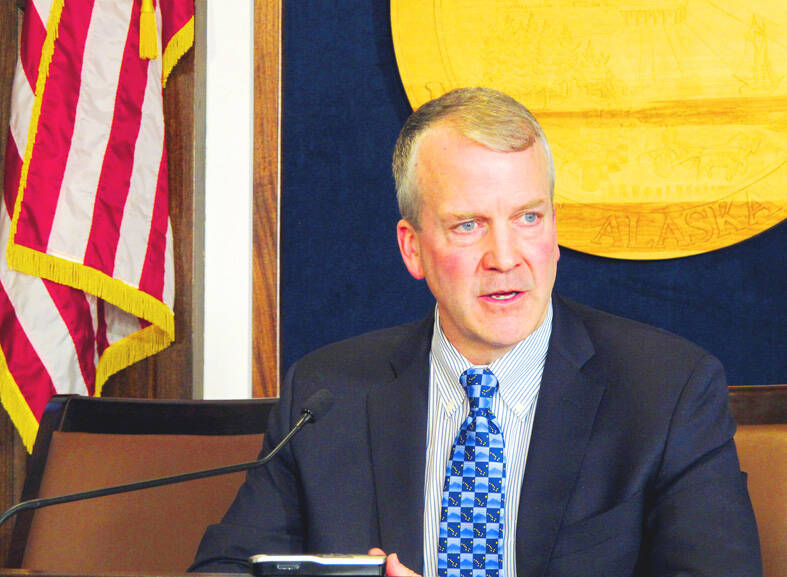US Senator Dan Sullivan has called for more military support and harsher economic sanctions to deter China from invading Taiwan.
The Republican laid out a “three-layered approach” for the US to meet the “critical immediate needs to bolster deterrence in the Taiwan Strait” in an opinion piece published in the Wall Street Journal on Sunday.
The first layer is providing Taiwan with the necessary weapons to defend itself, he said.

Photo: AP
Sullivan said that he has, for the past three months, been urging his colleagues to “significantly strengthen” the weapons systems provided to Taiwan, so that the nation can prevail in a cross-strait conflict.
In October, US President Joe Biden’s administration requested emergency supplemental funding to provide security assistance to the US’ allies and partners, including Taiwan.
However, Sullivan said that the US$5.4 billion, out of the nearly US$106 billion budget requested to deal with Beijing, was far from enough, as the Chinese Communist Party is undertaking “the largest peacetime military buildup in history with a clear goal of conquering Taiwan.”
Criticizing the budget, he said it was set because the US government did not want to “spoil the mood music” when Biden met Chinese President Xi Jinping (習近平) on the sidelines of the APEC summit in San Francisco last month.
The second layer of deterrence is the US’ capability to defend Taiwan if the US president decided to do so, Sullivan said.
The US’ military power “has proven decisive in keeping the Taiwanese people free over the decades,” he said, adding that it has been “eroded” by Biden’s budgets.
The third layer is ensuring China is aware that launching a military attack against Taiwan would be met with “debilitating economic, financial and energy sanctions,” which could be “the most powerful” deterrence measure, he said.
Together with US Representative Mike Gallagher, Sullivan introduced the Sanctions Targeting Aggressors of Neighboring Democracies with Taiwan Act in March, which would impose comprehensive economic and financial sanctions on China if the People’s Liberation Army or its proxies launched an invasion of Taiwan.
The bill failed to advance in US Senate or US House of Representatives.
Sullivan said a lesson from Russia’s invasion of Ukraine is that “sanctions have the best chance of deterring conflict when they are ready to go before the conflict begins.”

Aftershocks from a magnitude 6.2 earthquake that struck off Yilan County at 3:45pm yesterday could reach a magnitude of 5 to 5.5, the Central Weather Administration (CWA) said. Seismological Center technical officer Chiu Chun-ta (邱俊達) told a news conference that the epicenter of the temblor was more than 100km from Taiwan. Although predicted to measure between magnitude 5 and 5.5, the aftershocks would reach an intensity of 1 on Taiwan’s 7-tier scale, which gauges the actual effect of an earthquake, he said. The earthquake lasted longer in Taipei because the city is in a basin, he said. The quake’s epicenter was about 128.9km east-southeast

GENSLER SURVEY: ‘Economic infrastructure is not enough. A city needs to inspire pride, offer moments of joy and foster a sense of belonging,’ the company said Taipei was named the city with the “highest staying power” in the world by US-based design and architecture firm Gensler. The Taiwanese capital earned the top spot among 65 cities across six continents with 64 percent of Taipei respondents in a survey of 33,000 people saying they wanted to stay in the city. Rounding out the top five were Vietnam’s Ho Chi Minh City (61 percent), Singapore (59 percent), Sydney (58 percent) and Berlin (51 percent). Sixth to 10th place went to Monterrey, Mexico; Munich, Germany; Sao Paulo, Brazil; Vancouver; and Seoul. Cities in the US were ranked separately, with Minneapolis first at

The New Taipei City Government today warned about the often-overlooked dangers of playing in water, and recommended safe swimming destinations to cool off from the summer heat. The following locations in the city as safe and fun for those looking to enjoy the water: Chienshuiwan (淺水灣), Baishawan (白沙灣), Jhongjiao Bay (中角灣), Fulong Beach Resort (福隆海水浴場) and Sansia District’s (三峽) Dabao River (大豹溪), New Taipei City Tourism and Travel Department Director-General Yang Tsung-min (楊宗珉) said. Outdoor bodies of water have variables outside of human control, such as changing currents, differing elevations and environmental hazards, all of which can lead to accidents, Yang said. Sudden

Tropical Storm Podul has formed over waters north-northeast of Guam and is expected to approach the seas southeast of Taiwan next week, the Central Weather Administration (CWA) said today. The 11th Pacific storm of the year developed at 2am over waters about 2,660km east of Oluanpi (歐鑾鼻), Pingtung County — Taiwan's southernmost tip. It is projected to move westward and could have its most significant impact on Taiwan on Wednesday and Thursday next week, the CWA said. The agency did not rule out the possibility of issuing a sea warning at that time. According to the CWA's latest update, Podul is drifting west-northwest